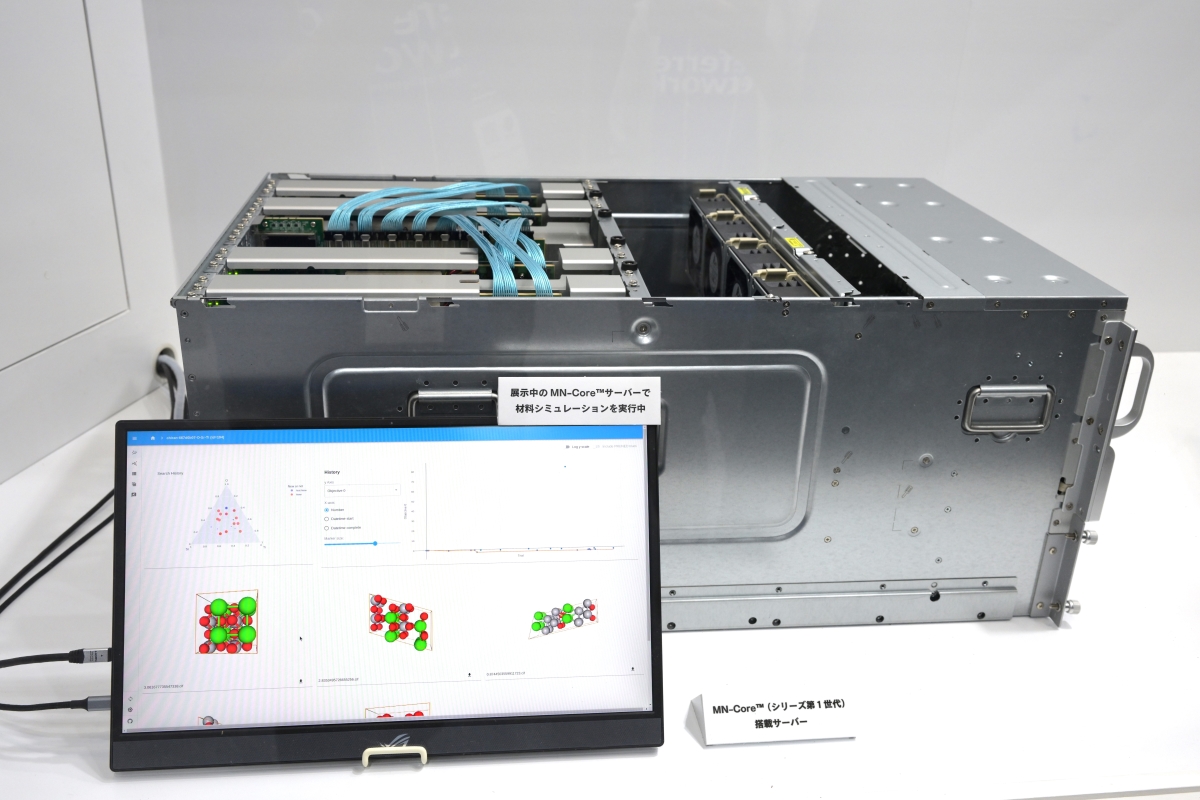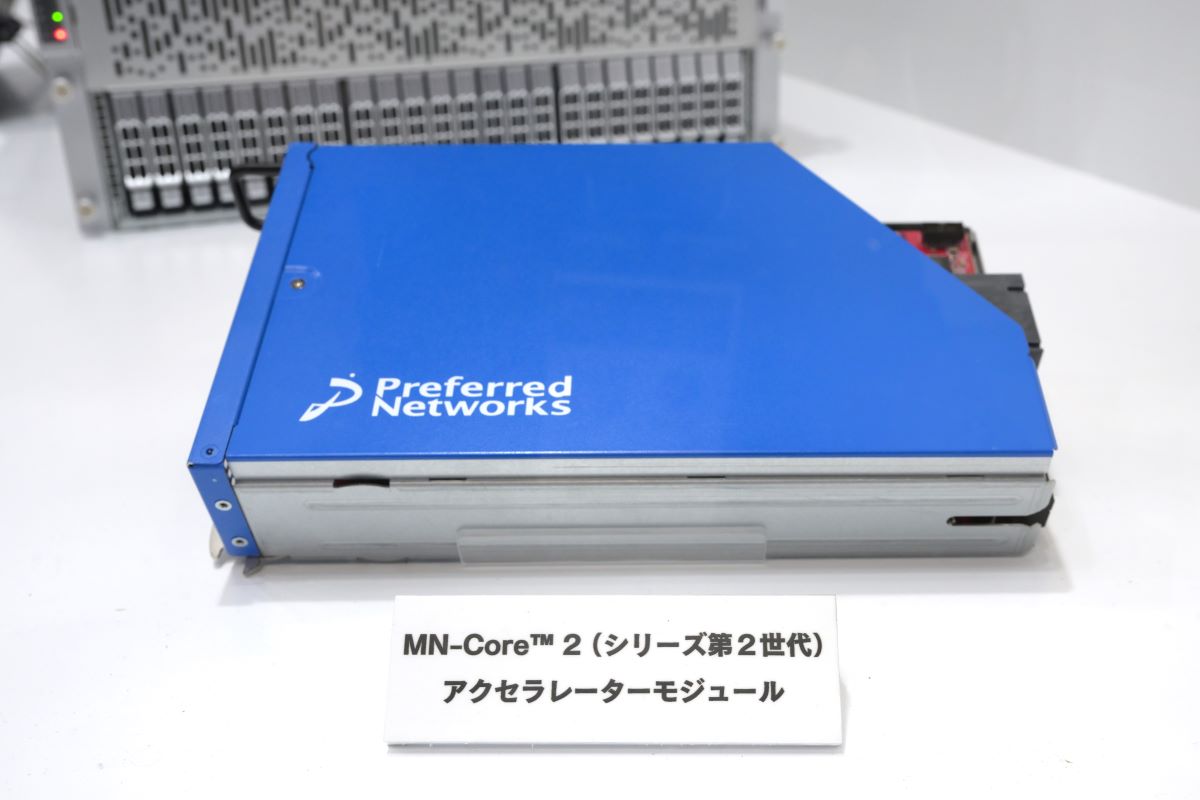News
PFN’s MN-Core Deep Learning Processor Now Powers AI-Accelerated Materials Simulator Matlantis
Custom accelerator achieves stable threefold increase in speed for actual materials discovery workloads compared with general-purpose processors
2023.10.16
TOKYO – October 16, 2022 – Preferred Networks, Inc. (PFN) has begun using MN-Core™, the first generation of deep learning-optimized custom processor co-developed by PFN and Kobe University, as a computational infrastructure for PFP, PFN’s proprietary deep learning model that the universal atomistic simulator Matlantis™ is based on. MN-Core-powered Matlantis has been provided to ENEOS Corporation (ENEOS) as a commercial cloud-based service since August 2023 through Preferred Computational Chemistry, Inc. (PFCC), the joint venture between PFN and ENEOS for sales of Matlantis.
 Live demonstration of Matlantis operating on an MN-Core server at CEATEC 2023
Live demonstration of Matlantis operating on an MN-Core server at CEATEC 2023
Matlantis is currently powered by multiple types of graphic processing units (GPUs) and other devices to flexibly process a variety of materials simulation workloads. PFN’s assessment has shown that Matlantis’s simulation speed is consistently about three times higher when PFP is powered by MN-Core than when powered by general-purpose GPUs. The tested practical workloads include molecular dynamics calculations that are required for generating physical properties of new materials such as density, viscosity, heat conductivity and specific heat.
Alghouth PFN had previously limited the use of the MN-Core processor to internal research and development purposes, the company adopted MN-Core for Matlantis following extensive performance tests for various deep learning workloads and development of specialized software stack. PFN’s assessments have also shown that compared with the GPU-powered MN-2 supercomputer, MN-Core-powered MN-3 has achieved a tenfold increase in 3D model reconstruction speed and a sevenfold increase in automatic optimization speed for PFN’s image recognition model.
PFN will continue tuning its hardware and deep learning architecture to prepare stable computational resources that are optimized for materials discovery. PFN expects MN-Core will enable Matlantis users to perform materials simulations with increased speed and complexity that are aligned with real-world physics.
Going forward, PFN will continue developing its computing infrastructure powered by MN-Core and the second-generation model MN-Core 2 to provide it as a service via the cloud.
 MN-Core 2 module on display at CEATEC 2023
MN-Core 2 module on display at CEATEC 2023
About Matlantis™
Jointly developed by PFN and ENEOS, Matlantis is a universal atomistic simulator that supports large-scale material discovery by reproducing new materials’ behavior at an atomic level on the computer. PFN and ENEOS have incorporated a deep learning model into a conventional physical simulator to increase the simulation speed by tens of thousands of times and to support a wide variety of materials. Launched in July 2021 as a cloud-based software-as-a-service, Matlantis has been used by 41 companies and institutions as of September 1, 2022. Matlantis has been used for discovering various materials including catalysts, batteries, semiconductors, alloys, lubricants, ceramics and chemicals. For more information, please visit: https://matlantis.com
About MN-Core Series™
Jointly developed by PFN and Professor Junichiro Makino’s research team at Kobe University, the MN-Core™ series of processors are optimized for matrix operations that are essential for deep learning. To maximize the number of arithmetic units on the MN-Core chip, other functions such as network control circuits, cache controllers and command schedulers, are incorporated in the compiler software rather than the hardware, achieving highly efficient deep learning operations while keeping the costs down. MN-3, PFN’s supercomputer powered by MN-Core, has topped the Green500 list of the world’s most energy-efficient supercomputers three times between June 2020 and November 2021.



